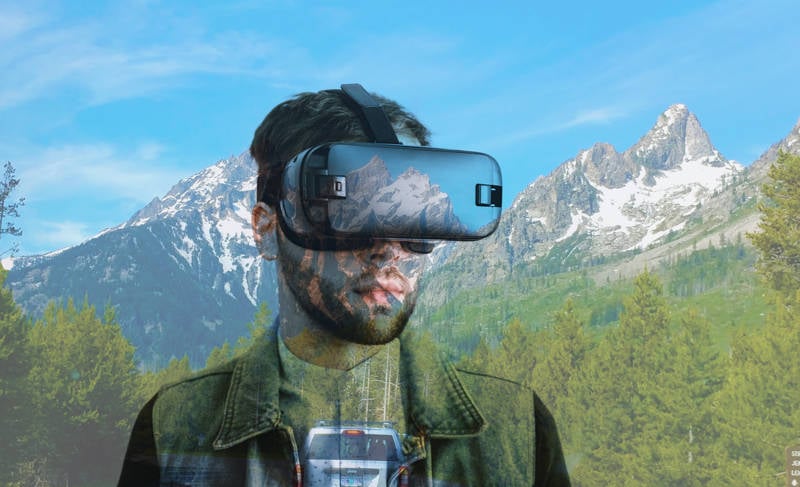View the magnificent stream of waters hailing down underneath you while you stand on top of the Eiffel tower, this is only possible in the virtual world of Metaverse. Metaverse has gained so much popularity because it’s not a tech bubble that has grown from the recent ripples created on the running waters, but it has been built on top of years of research on artificial intelligence and immersive interactivity and will transform the entire technology in several ways.
Advantages of the Metaverse in the Touring Sector
The idea of interactive virtual worlds could help to alter the way customers engage with other locations and may replace some instances of physical travel. Tourism in Metaverse is the key element of this tech revolution. The idea of metaverse tourism has several benefits, not the least of which is the ability to inspire travellers. People aspiring to travel can view a place beforehand to get a better understanding of the environment for a fraction of the cost involved in travelling. This helps them to prevent situations.
In addition to serving as a source of inspiration, Metaverse tourism solutions have the capacity to significantly improve the booking process by offering useful insights about the destination of travel which cannot be illustratively communicated in traditional ways. The likelihood that a consumer would continue their booking process rather than cancel increases as a result of the tourism business.

Virtual Reality and Augmented Reality aiding The Metaverse Tourism
With the advancement of technology, the travel and tourism industry has been drastically changing. In order to provide tourists with the latest possible experience, the industry has to change and adapt to new technologies to suit the new age of millennial and Gen Z audiences. In this regard, Virtual reality and Augmented reality is one of the most promising technologies that have the potential to revolutionise the tourism industry.
Virtual Reality is a computer-generated environment with scenes and objects that appear to be real, making the user feel they are immersed in their surroundings. This environment is perceived through a device known as a Virtual Reality headset and Augmented reality is the integration of digital information with the user’s environment in real-time. Unlike virtual reality, which creates a totally artificial environment, AR users experience a real-world environment with generated perceptual information overlaid on top of it. So, Virtual Reality is a completely made-up environment and Augmented Reality is a mix of virtual digital entities on top of the real-life peripheral vision, something like a hologram but on your glasses.
There are many potential use cases for Augmented Reality in tourism. Augmented Reality can be used to provide tourists with information about their surroundings. It can be used to create interactive and immersive tours. Augmented Reality can also be used to create virtual experiences that are not possible in the real world.
The tourism industry has been quick to adopt these technologies in order to remain competitive and appeal to the latest generation of people who are more willing to travel, more than any other generations did in the past. In recent years, there has been a growing interest in the use of Virtual Reality and related technologies such as spatial audio to create immersive experiences for tourists and the tourism industry should leverage all these technological advancements. Virtual reality is already used by holiday destinations to lure in customers. Removing the traditional costs of travel and entry fees, customers can experience travel destinations without ever getting out of the room.

Is tourism’s future in virtual reality?
Several big investors who could change the industry and market have already invested heavily in VR tourism, while Themed resorts like Disneyland are providing VR attractions as an experience for the user. Additionally, VR excursions have been exploited to attract customers, with safaris in Kenya, snorkelling in the Maldives, and trips along Germany’s Baltic coast all being promoted by client-hungry and pandemic-affected members of the tourist sector.
The metaverse in tourism has the potential to be the next big thing because it offers a new way of interacting with others and experiencing the world. It is a completely immersive environment that allows you to be whoever you want to be and do whatever you want to do.
It has already set a sure foot into the gaming world. There have been a lot of VR mainstream games as well such as Half-Life and Blue Mars, and fitness freaks are looking into strenuous VR games that take them into another world but the possibilities are endless. The metaverse has the potential to revolutionise the way we live, work, and play and this holds true for the Tourism industry as well.





